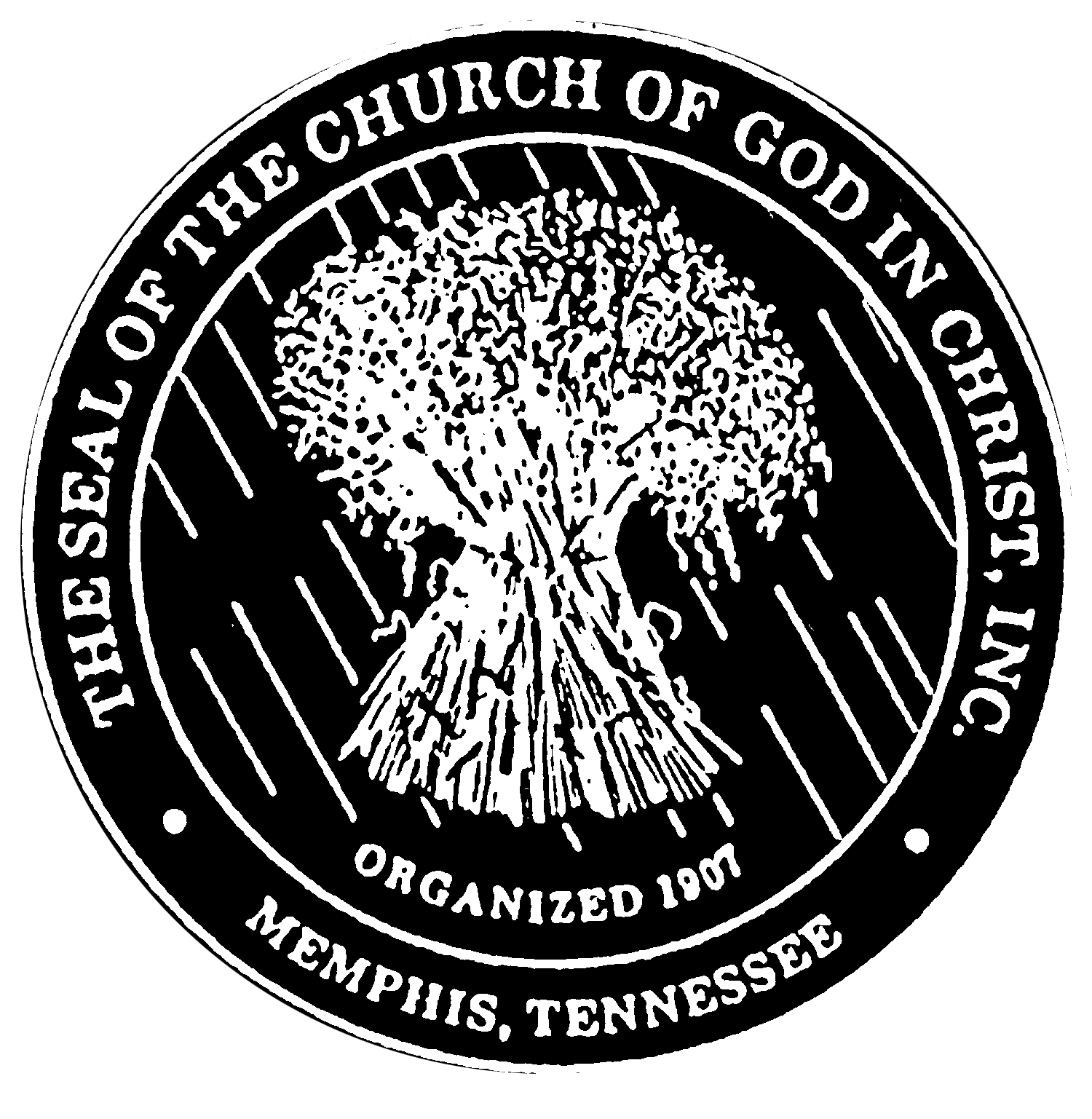How To Know The Unknown God: Acts Series #31

From the little out-of-the-way city of Berea, the Apostle Paul makes a journey of 200 miles to the city of Athens. His companions leave him there and for a period of time, Paul is in Athens alone. He was alone in the academic capital of the ancient world. It was the home of Socrates, Plato, and Aristotle. It was a university city.
 Paul was also in the artistic center of the ancient world. It was a city of literature, sculpture, and oratory. There, he finds himself alone in that totally new atmosphere. We can almost imagine that for a few days he walks around the city, moves in and out of the marketplace which would be our equivalent of the mall. As he walked around, the Bible says that he discovered that the city was full of idols.
Paul was also in the artistic center of the ancient world. It was a city of literature, sculpture, and oratory. There, he finds himself alone in that totally new atmosphere. We can almost imagine that for a few days he walks around the city, moves in and out of the marketplace which would be our equivalent of the mall. As he walked around, the Bible says that he discovered that the city was full of idols.
Athens had been called the “junkyard of idols.” We know from secular history that about that time they estimated that there were about 30,000 gods in the city of Athens. There were gods everywhere. In fact, more gods than people were there. The city, at that time, similar to many university towns, was not a large city—about 10,000 people. There were 30,000 gods and there were 10,000 people. That’s why one writer said that in Athens it was easier to find a god than it was to find a man. There were gods on the hilltop. There were gods down the streets. There were gods in the homes. Gods everywhere—here a god, there a god, everywhere a god. They worshipped everything, therefore, they worshipped nothing.
As the Apostle Paul moved around, the Bible says that what he saw “stirred him in his spirit.” He was infuriated by what he saw going on in that city of Athens. So, he did what all of us ought to do when our spirits are stirred by a lie. The Bible says he began to preach Jesus and the resurrection. He did it in a rather interesting way and in many interesting places. In Acts 17:17, we learn that Paul taught in the synagogue.
We might compare that to what we call church evangelism. He also did it in the marketplace. We might compare that to lifestyle evangelism. He also preached the gospel in another place on Areopagus. We might call that campus evangelism.
Paul had a purpose and a reason for being in the city of Athens. Paul was not on a journey as a sightseer. Paul was a soulwinner, and when he came to the city of Athens, he came there to declare the good news of the death, burial, and resurrection of the Lord Jesus Christ.
Wouldn’t you have liked to have heard him preach in the mall? Wouldn’t you have liked to have heard the things that Paul said in the midst of the junkyard of idols. As he preached, the Bible tells us in Acts 17:18, two groups of philosophers encountered him— one known as the Epicureans and the other, the Stoics. On the one hand, the Epicureans are what we would call the agnostics of the day. They thought maybe there was a God, but they weren’t sure what kind of God He was, and they didn’t know if they could know Him or not. They certainly didn’t believe that he was personal or interested in their own lives. They developed the Epicurean philosophy which the basic pursuit of their philosophy was pleasure. It was a philosophy of indulgence.
 On the other hand, the Stoics, whereas the Epicureans took the view of enjoying life, the Stoics took the view to endure life. They believed in pantheism. It’s not that they didn’t know that there was a God; they believed that everything was God. Certainly, a God like that was not personal either. Every person was kind of his or her own God. They believed they were just to make it through life as best one could. The Epicureans were the playboys of the day. The Stoics were the hippies of the day. Their attitude was indifference.
On the other hand, the Stoics, whereas the Epicureans took the view of enjoying life, the Stoics took the view to endure life. They believed in pantheism. It’s not that they didn’t know that there was a God; they believed that everything was God. Certainly, a God like that was not personal either. Every person was kind of his or her own God. They believed they were just to make it through life as best one could. The Epicureans were the playboys of the day. The Stoics were the hippies of the day. Their attitude was indifference.
Thus, these two competing philosophies accosted the Apostle Paul, in a condescending way. So much like the intellectual community of our day. In Acts 17:18, we read, “What will this babbler say?” The word “babbler” originally meant a seed picker. It was a word that described the little bird that went around picking seeds off the sidewalks. It came to be used to describe someone who just borrowed ideas and thoughts he heard from somebody else and put them forward as his own. They were basically calling Paul a birdbrain. “What would this little birdbrain do?” What they did not know was they were encountering probably the most brilliant mind ever produced in the history of the Christian faith.
They took Paul, this “birdbrain” as they called him, up to the courthouse of the city of Areopagus, located right in front of the Acropolis which was the hill of the city. This is the location upon which was the Pantheon and many other temples of gods. They ask him to state what he was preaching. Paul was at home in any community and in any area. Being the kind of preacher he was, he knew how to find a point of contact—something to get their interest. He starts off in a rather complementary manner. He said, “I’ve been walking the city and I have noticed that you have gods of all description. In fact, you even have a god to the UNKNOWN god. Using that as a point of contact, he said, “I want to tell you about the unknown God who is a God who can be known.
Can you know God? Is it possible for us to really know God? How to know God is the substance of Paul’s sermon which begins in Acts 17:24 and goes to the end of the chapter. He is saying that the God you do not know is a God who indeed can be known.
I. We Can Know The Purpose of God: Creation
 In Acts 18:24-25, we read, “God that made the world and all things therein, seeing that he is the Lord of heaven and earth, dwelleth not in temples made with hands; neither is worshipped with men’s hands, as though he needed anything, seeing he giveth to all life, and breath, and all things. And hath made of one blood all nations of men for to dwell on all the face of the earth, and hath determined the times before appointed and the bounds of their habitations; That they should seek the Lord, if haply they might feel after him, and find him, though he be far from every one of us. For in him we live, and move, and have our being, as certain also of your own poets have said. For we are also his offspring.”
In Acts 18:24-25, we read, “God that made the world and all things therein, seeing that he is the Lord of heaven and earth, dwelleth not in temples made with hands; neither is worshipped with men’s hands, as though he needed anything, seeing he giveth to all life, and breath, and all things. And hath made of one blood all nations of men for to dwell on all the face of the earth, and hath determined the times before appointed and the bounds of their habitations; That they should seek the Lord, if haply they might feel after him, and find him, though he be far from every one of us. For in him we live, and move, and have our being, as certain also of your own poets have said. For we are also his offspring.”
The Apostle Paul just smashes all their gods into oblivion. He just puts them all on the rubbish heap of human history. He sets before them the God who IS, the God you can KNOW who is the God of creation.
You have to start with the God of creation. It is not an accident that the Bible begins that way in Genesis 1:1. “In the beginning, God created the heavens and the earth.” This is where the lost and saved have to begin. God is the God of creation. God is the source of creation.
As we are approaching the end time, there seems to be an overwhelming and a growing understanding in the academic community, especially in the scientific community, that all of the evidence now argues for creationism, for a God of creation. It is becoming increasingly difficult to believe the world just happened to be. It is getting harder and harder to believe that the world was a colossal accident. All you have to do is just look at the creation, and it is overwhelming evidence that there is indeed a creator God.
Think about the vastness of creation. Get out your telescope and look at the galaxies of creation. We are discovering more and more as the strength of our telescopes gets greater and greater. We are finding that this universe is infinitely, unimaginably far beyond the ability of the human mind to understand. Stars upon stars are all created by the omnipotent hand of a personal God who can be known.
We can also take our microscope and we discover that the creation is not only unimaginably large, but we find that it is also indescribably small. So much so that they tell us in one single snowflake, there are 30 billion electrons.
Think about the human body. We know more about DNA now than we ever knew. Darwin would never have been an evolutionist if he had known anything about DNA. We have discovered that the complexity of man’s DNA is such that if you strung it all out in book form, you could write 600 books of a thousand pages each just to describe the simple instructions that are given about how a human body is to function and how it is to be put together.
Not only is creator God the source of all creation, He is the sustainer of all creation. Paul had read their literature. He had read their own poets. He quotes from their poets in verse 28 when he says, “For in him we live, and move, and have our being; We are also his offspring.” He is saying that God didn’t just create the world and walk away. God is infinitely involved in this universe. The very air we breathe comes from God.
In Acts 17:26, Paul talked about the fact that God has determined the times. This means God has determined when you would be born. God has determined when you will die. It says that God has determined the bounds of your habitation. In other words, Paul was saying that God even picked where you were going to live. God knows everything about you. God is real and God is personal. God knows all about you.
God provides the food that we eat. God provides the air that we breathe. God provides everything about it. He is the source of creation. He is the sustainer of creation. He is the sovereign of creation. You will notice in verse 24 it says, “He is the Lord of heaven and earth.” God is on His throne. He has always been on His throne. He will always be on His throne.
I heard about an ambassador who became greatly concerned about world events. He was so concerned about world events that he couldn’t sleep. One of his assistants said to him, “Mr. Ambassador, did God take care of the world before you were born?” He said, “Well, I’m sure He did.” He said, “Will God take of the world after you were born?” He said, “I’m sure He will.” He said, “If God took care of the world before you were born and takes care of it after you’re born, don’t you think God can handle it as long as you are here?” He said, “I think He can.” And he went to sleep.
I don’t care what’s going on in this world. I don’t care what the circumstances may be. I don’t care what the upsetting things may be that take place in this world, the God of creation is the God who not only created this universe but sustains this universe.
II. We Can Know The Passion Of God: Incarnation
 In Acts 17:28, Paul stated, “…we are also his offspring.” In verse 29 we read, “For as much then as we are the offspring of God, we ought not to think that the godhead is like unto gold or silver or stone graven by art and man’s device.”
In Acts 17:28, Paul stated, “…we are also his offspring.” In verse 29 we read, “For as much then as we are the offspring of God, we ought not to think that the godhead is like unto gold or silver or stone graven by art and man’s device.”
He’s talking about humanity. He says we are His offspring. Someone asks, “Does that mean then that everybody is a child of God?” In one sense, God created all people, God is the Father of all people. But not in the sense that all people are redeemed and born into the family of God by means of the new birth experience. We are His offspring in the sense that God created us in His image. When Adam and Eve were created from the pristine hands of the Eternal God in the Garden of Eden, they were His offspring in the sense that they bore His image. God is not reflected in images of silver and gold. God is reflected in images of flesh and blood. But something has happened to God’s offspring. Across the human family has fallen the dark shadow of human sin. In the Garden of Eden, the Bible tells us that when sin entered humanity, God’s offspring fell into sin.
Today, a man with groans and perspiration works for his living out of the soil of the earth. The dark shadow of sin—so that today a woman climbs the walls and screams as she gives birth to her baby. The fall of sin is in this world.
We reach out to get a rose and the thorn pricks our hands and we bleed. We bleed because of the face of sin in this world. We walk down the street, and we see a young man walking by, and we see needle marks on his arm, and we see a lifeless look in his eyes because he has fallen into the pit of drugs. Sin is to blame. We see a young woman walking down a street with a lewd stare on her face and shame written across her countenance because she has fallen into the pit of sexual immorality. We go to the prisons, and we see prisoners behind bars. It’s because of sin. We go to a funeral home and we see families grieving and sorrowing because a loved one is lost and it is because of sin. We go into a hospital room, and we see a man dying, gasping for breath, and we know that sin is to blame for death in this world. God’s offspring fell into sin.
However, when we get to Acts 17:31, we read, “By that man.” He has just been talking about mankind in general—offspring. Now he is talking about another offspring. It is a rather interesting use of words. When it says that we are his offspring, it is the Greek word which I could translate for you—”genos.” The offspring—we are His offspring. We are His begotten.
But when Jesus came into the world, the Bible says not that he was his offspring, but his only begotten –monogenes. The only one born like Jesus was born. When Jesus came into this world He wasn’t born like you and me. When Jesus Christ came into this world, He was conceived of the Virgin Mary. When Christ was born, he was the only one ever born without the taint of human sin. The Holy Spirit bypassed the normal cycle of birth and touched the womb of the Virgin Mary so that when Jesus Christ was born. He was the only one born without original sin and the only one who lived a life and never sinned.
In Jesus, is where God has incarnated himself. The word, incarnation means God in human form. Christmas is all about incarnation. Christmas is all about God becoming a man. Not gods of silver or stone or gold, but the Lord Jesus Christ. It was that man who died on a cross. It was that man who paid the price for our sin. It is that man—the Lord Jesus Christ who is the message and the meaning of the Christian life. It is that man who brings you into the presence of the God you can know.
III. We Can Know The Power Of God: Resurrection
 When the Apostle Paul began to talk about the resurrection he moved to the very heart and core of the Christian faith. In Acts 17:30-31, we read, “And the times of this ignorance God winked at: but now commandeth all men everywhere to repent. Because he hath appointed a day, in which he will judge the world in righteousness by that man whom he hath ordained: whereof he hath given assurance unto all men, in that he hath raised him from the dead.”
When the Apostle Paul began to talk about the resurrection he moved to the very heart and core of the Christian faith. In Acts 17:30-31, we read, “And the times of this ignorance God winked at: but now commandeth all men everywhere to repent. Because he hath appointed a day, in which he will judge the world in righteousness by that man whom he hath ordained: whereof he hath given assurance unto all men, in that he hath raised him from the dead.”
It is the resurrection of the Lord Jesus Christ which pulls all of Christianity together. Deny the resurrection of Jesus Christ and you have jettisoned Christianity. Take the resurrection out of the Gospel of the Lord Jesus Christ and you have gutted it of its meaning and its purpose.
Jesus said He would be raised from the dead. It seemed to go over the heads of the disciples every time he said it. When he did come from the dead, they didn’t believe it at first. All through His ministry Jesus said, “I’m going to die and three days later I’m going to come back from the dead.
When he did come back from the dead, the angels said to the disciples, “He is risen as he said.” It vindicates His Word. If Jesus Christ rose from the dead, and we know He did, that simply means that every promise He makes to you and me, He is able and He will fulfill. It means it also vindicates His work. When Jesus died on the cross, Jesus was paying one payment for the sins of the whole world. When He was buried in that tomb, the question now arises—has God accepted the payment of the sins of the world? When Jesus rose again from the dead, it was God’s receipt that what Jesus had paid for at Calvary was adequate and anybody who wanted to be could be forgiven of their sins.
Paul tied three realities to the resurrection of the Lord Jesus. First, he tied the reality of retribution. He said in verse 31, “Because he has appointed a day in which he will judge the world in righteousness.” That verse of Scripture says that there is going to be a judgment day. I know people laugh at it. I know people make fun of it. They call guys like me “hell fire and damnation, fire and brimstone preachers.” They scorn at it and make fun of preachers who preach about the day of judgment.
In the future, there is going to be a day of judgment. One of these days we are going to meet God. I don’t know when the day is going to be, but there’s going to be a day. There will be a day when the last song is sung. There will be a day when the last word is uttered. There will be a day when the last sale is made, and when the last game is played. There will be a day when the last battle is fought. There will be a day when the last tool is wrought. Then judgment will come.
In the human brain, every detail of your past life is preserved. It’s just like a strip of movie film, complete with a soundtrack. A skillful doctor can just touch the right place in your brain with a current and can cause you to relive every detail of your past life. There will come a time in eternal judgment when the God of this universe, with sovereign power, will touch the lives of those who stand before Him in judgment. Every detail of your life will be brought before you.
Let me ask you a question. Would you like every detail of your life to be put on screens in your church today or on the evening news so that the whole world might see? How are you going to stand in judgment? I have good news for you. The good news of what Jesus did at the cross is that 2,000 years ago, he endured your judgment for you. Thus, when you come to Him and get to know God through the Lord Jesus Christ your condemnation has already passed away. We can settle our case out of court.
Second, not only is there no retribution, but there is also righteousness. He’ll judge the world in righteousness by that man whom he hath appointed. You have only two choices. You can either stand before God in your own righteousness or you can stand before God in the righteousness given to you by the Lord Jesus Christ. Which would you like?
The Bible says our righteousness is as filthy rags. Somebody says, “I demand my rights.” This is a day when people are clamoring for their rights. I don’t want my rights. If I got my rights I’d be in hell forever. I don’t want my rights, I want mercy. I want grace. I don’t want to get what I do deserve. I want to get what I do not deserve. When I go into heaven, I will go in the perfect righteousness of the Lord Jesus Christ.
Third, there is repentance. In Acts 17:30, we read, “in the times of ignorance God overlooked it, but God commands all men everywhere to repent.”
If you read this chapter today and do not know Christ as your Savior and you do not intend to receive Him as your Savior, you have made a terrible mistake. No longer will you be able to proclaim your ignorance. No longer will you be able to say you didn’t know—no one ever told you—you never heard. It would be far better for a person to die in the darkest jungles of Africa and face God than to die in a nation, where almost on every hand, almost in every way, people can hear the good news of the gospel of Jesus Christ.
 The Bible says he has commanded all men everywhere to repent. This means rich men and poor men—God says you have to repent. This means educated and uneducated—God says you have to repent. This means cultured and uncultured—God says you have to repent. There aren’t two different hells. There’s not a hell for the poor folks and a hell for the rich folks. There’s not a hell for the uneducated folks and a hell for the educated folks. Without the Lord Jesus Christ you can go to a place called hell. You can go to a place called hell just as quickly with a million dollars in the bank as you can go owing a million dollars. God says “repent.” How do you repent? The word repent is the word “matanoeo,” which means a change of mind. It means an about face. It means you are going in this direction and realize you are a sinner and that your sins are leading you to hell. So, you change your mind about your sin, about yourself, and about Jesus. You turn around and you now move in the direction of Christ. You now move in the direction of heaven. Would you repent of your sins?
The Bible says he has commanded all men everywhere to repent. This means rich men and poor men—God says you have to repent. This means educated and uneducated—God says you have to repent. This means cultured and uncultured—God says you have to repent. There aren’t two different hells. There’s not a hell for the poor folks and a hell for the rich folks. There’s not a hell for the uneducated folks and a hell for the educated folks. Without the Lord Jesus Christ you can go to a place called hell. You can go to a place called hell just as quickly with a million dollars in the bank as you can go owing a million dollars. God says “repent.” How do you repent? The word repent is the word “matanoeo,” which means a change of mind. It means an about face. It means you are going in this direction and realize you are a sinner and that your sins are leading you to hell. So, you change your mind about your sin, about yourself, and about Jesus. You turn around and you now move in the direction of Christ. You now move in the direction of heaven. Would you repent of your sins?
Paul finished preaching. What were the results? We are always interested in the results. The results were not overwhelming. Some people say that Paul failed as he preached there. I do not believe that because we are told very clearly that he preached Jesus and the resurrection. You never fail when you preach the whole truth.
There were three responses to Paul’s message. In verse 32, we read, “And when they heard of the resurrection of the dead, some mocked: and others said, We will hear you again of this matter.” There was laughing. People made fun of the message. But it won’t be a laughing matter in eternity.
Additionally, there was also delaying or procrastinating. There were some who said, “Let’s just put it off. Let’s don’t get caught up in this now. Let’s think this thing through.” If I thought you could put off your salvation, I could write to you today who do not know Christ – go home and think about it this afternoon. But I don’t have the power to tell you because we do not know how long we have to live. Yesterday is gone forever, down the roads of wasted years and wasted tears. The road to tomorrow may never come. The only time we have is this very moment. It is dangerous to delay.
Then, we read, in verse 34, “how be it certain men clave unto him, and believed: among which was Dionysius the Areopagite and a woman named Damaris, and others with them.” Some responded by jeering. Some responded by delaying. But thank God, some responded by believing. They received the message into their hearts and when they received the message of the gospel of the Lord Jesus Christ into their hearts, you know what happened to them? They came to know the God who can be known!
We are called and commissioned to declare to this world that God can be known. Creation shouts of the purpose of God. The incarnation shows the passion of God. Resurrection salutes the power of God.



























